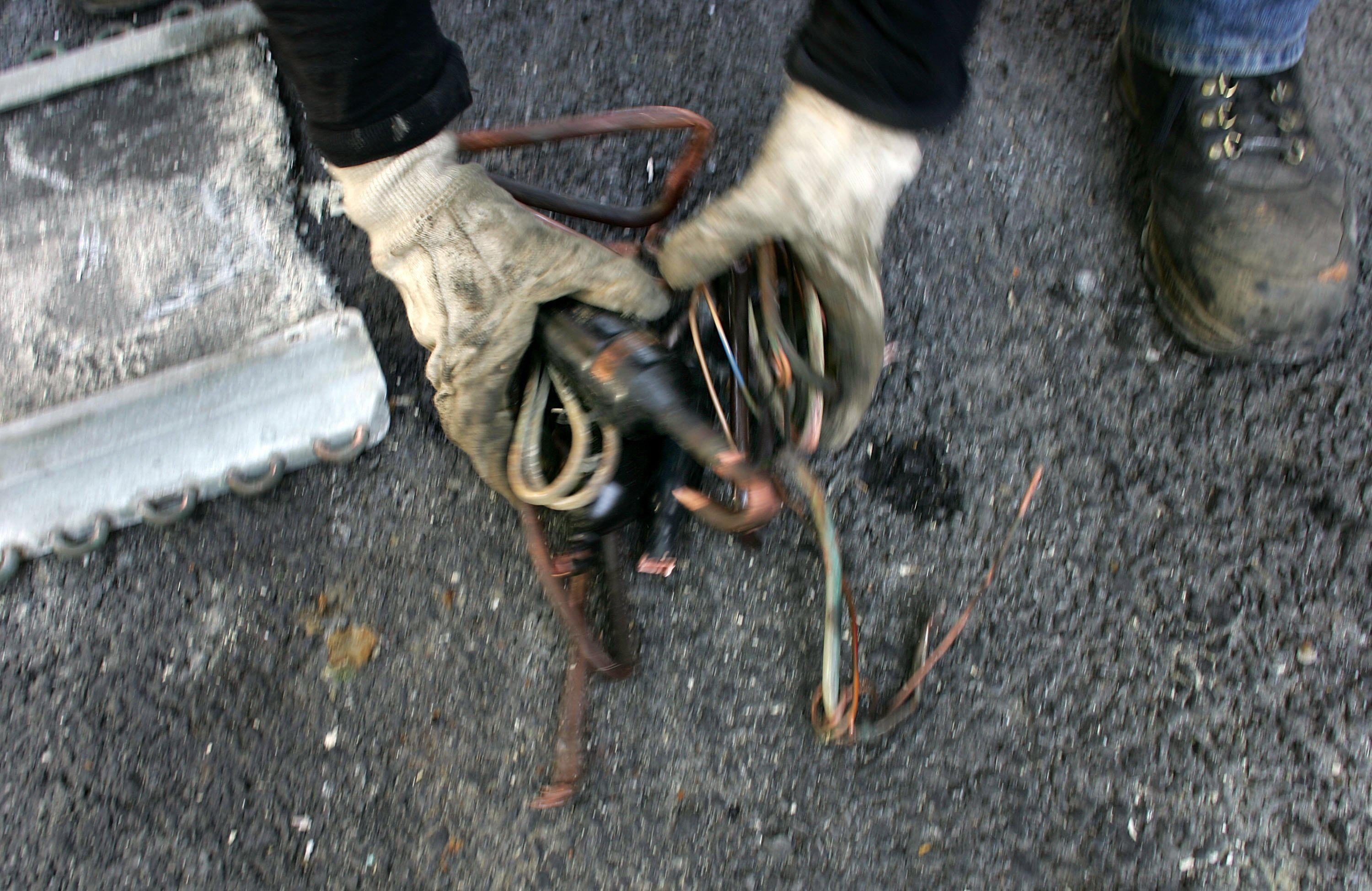The massive explosion that sent flames shooting two stories high and injured at least four people on the campus of the University of California–Berkeley on Monday evening can likely be traced to the recent theft of copper grounding wire from the campus electrical system, officials believe. The explosion was preceded by a campuswide power failure, which likely can also be traced to the wire theft. Berkeley officials believe the wire thieves responsible for the blackout and explosion used heavy machinery to unearth the wire they stole, and if that sounds outlandish to you, then you haven’t been paying attention to the news. Wire-related crime isn’t just for meth addicts and characters in The Corner anymore. We are living in the Golden Age of Copper Theft.
It’s no exaggeration to say that copper-wire theft in America is at or near an all-time high, thanks to a general economic malaise, high prices paid by scrap metal dealers (about $3.25 per pound of copper), and the relative ease with which wire can be stolen from unguarded locations and resold to laissez-faire recyclers who don’t really care where it came from. During the height of the recession, metal thieves targeted foreclosed and abandoned houses; now that those structures have been stripped clean, they’re setting their sights on bigger targets. In Wichita, Kan., to name just one city beset by copper thieves, power company officials reported four copper thefts from substations in all of 2012. By April 2013, they had already reported 50.
Some of the capers are impressive. In March, New Jersey thieves used forklifts to steal $68,000 worth of wire from an unguarded electrical substation. In August, the Long Island Rail Road’s morning service was delayed after thieves stole copper from a rail connection in Queens. In April, thieves in Utah somehow stole six miles of wire from a busy interstate highway, shorting out lights along the median strip; authorities believe the thieves “used sledgehammers to smash into boxes of wires running to light poles, clipped the copper and then used cars or trucks to pull 30,000 to 35,000 feet of wire out of the ground.” Take that, Ocean’s Eleven!
Inevitably, places that have a lot of copper wire are using that wire to conduct electricity. Needless to say, the theft of live wire is very dangerous, as carelessness around electricity can cause you to die. And yet desperate thieves are running the risk. Authorities near Bellingham, Wash., have reported thieves are using bucket trucks to steal live wire from power lines. In April, wire thieves caused an explosion, an extensive blackout, and $150,000 worth of damage after snatching a negligible amount of wire from a substation in Wichita; police told KWCH-12 that the culprit was “probably seriously hurt and may have lost hearing or eyesight.”
As the KWCH story noted, if thieves are willing to risk life and limb to steal some live wire, there isn’t much that anyone can do to stop them. The better solution here is to pass laws better regulating scrap metal dealers’ business practices—requiring them to record the names and addresses of everyone who brings them used wire, for example. The Senate was actually considering a bill on this topic earlier this year—S.394, otherwise known as the Metal Theft Prevention Act of 2013—which would have made copper wire theft a federal offense in many cases, and which would have required scrap dealers to record all transactions and demand proof that the resellers actually owned the metal being sold. But the Senate had other priorities, none of which actually involved passing needed laws, and the bill went nowhere. That’s the United States government for you: not so great for most of America, an amazing boon to the wire theft industry.
Crime is Slate’s crime blog. Like us on Facebook, and follow us on Twitter @slatecrime.
